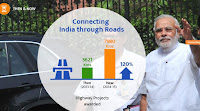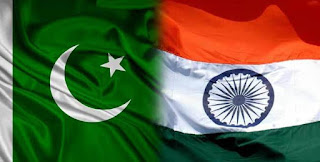The proverb says, “Water is life". with the increasing industrialization, over-use of drinking water, and exploitation of all-natural sources, human life is facing several questionable situations One of the essential elements of earth, water is the prime necessity of life. World Water Day has been marked on 22nd March every year since 1993 by UN observance. A core focus of World Water Day is to inspire action toward Sustainable Development Goal (SDG) 6: water and sanitation for all by 2030.
“Groundwater – Making the Invisible Visible” is the theme for World Water Day in 2022, said Swachh Bharat Mission, Executive Engineer Kumar Niraj on world water day 2022 at the DC office.
District Development commissioner Shashi Bhushan Mehra, Director District Rural development agency (DRDA) Alok Kumar, District Panchayati Raj officer District Public Relations Officer Rashmi Sinha, Department of Women & Social Welfare (DSWO) Alka Hembram, Drinking water & sanitation department Division 2, Executive Engineer Mukesh Kumar Mandal, Event organizer and IEC coordinator Suman Kumari & Birendra Kumar, Assistant District Coordinator Ritesh Kumar, District Program Coordinator (XISS-Unicef) Saurav Kishor, AFC Monitoring officer Prithvi Shukla, Jal Sahiyas, and other distinguished personalities were present.
Executive Engineer Division 2, Mukesh Kumar Mandal, welcomed to all the present distinguished guests and shared an overview of the campaign activities in the district.
Executive Engineer Division 1, Kumar Niraj said that Whenever freshwater comes to mind, we think of rivers, wetlands, lakes, or reservoirs but the fact is the total volume of water on Earth, 97.5% is saltwater and only 2.5% is fresh water. Of the freshwater, only 0.3% is in liquid form on the surface. Throughout, he emphasized and shared some of the basic ideas to save the water crisis. He said that today most households have water purifiers but though those water purifiers a large portion of water is wasted so using that wastewater in plantations and cleaning households can help us to save water. He focuses more on saving the rainwater nearby home and using buckets for showers etc.
He further added that since the launch of the program we have provided 89,467 households with tap water connections in the Giridih district in such a short time. and planning to provide tap water connections to each household within 2 years.
DDC, Shashi Bhushan Mehra, added that the value of water for humans is very important, Climate change, increasing droughts and irregular rainfall continue to pile pressure on water supplies for people in many communities. We must think from our own hearts and see concern for our surroundings only then we could feel the pain of the water crisis.
Director, DRDA Alok Kumar, added that the wars of the future will be fought over the water crisis. The rapid pace of urbanization poses a major threat to our groundwater resources. effects of climate change coupled with population growth are expected to drive competition for water, Groundwater is being pumped so aggressively that land is sinking day by day. The level of arsenic in the water has been increasing, glaciers are melting rapidly and the quality of water is extremely harmful to the health of the people that are forced to consume it owing to a lack of access to safe water.
He further added that If today we all do not be taken the collective thoughts to save every count of drinking water then our upcoming generations will not forgive us. He also emphasizes recharging the groundwater and for that to save the rainwater by designing soak-ups on the outside of the home.
District social welfare officer, Alka Hembram talked about the challenges children are facing in the state of Jharkhand. Every year in every 1000 children 27 children are dying below under 5 years and the unavailability of fresh drinking water could be one of the reasons for it.
She also emphasizes that with the support of Jal Sahiya at every AWC in the Giridih district we must make a bonding and aware child of the importance of water and its uses of it.
In the continuation of the program, An NGO called AFC India representatives, Prithvi shared the information related to the status of safe drinking water in Giridih district. Apart, he explained the details of the recharge water system and how these systems are needed of the hour in the current context.
District Project Coordinator, (XISS-Unicef) Saurav Kishor, talked about the importance of IEC for implementing the Jal Jeevan Mission, and for this, he has shared the entire campaign strategies for the district as well as the communication plan. During the talk, he shared the current progress report of the Jal Jeevan Mission of the Giridih district and added futuristic ideas for making the program a success.
Assistant District Coordinator Swacch Bharat Mission, Ritesh Kumar, shared and comparison of the ancestors’ time of human life with today’s generations of human life. During the talk, he added a quote “Our ancestors have seen the water in the rivers & ponds, our father has seen it in handpumps and wells and where our generations are looking it at the packaged bottle. if we will not wake up soon about water conservation then what our future generations will get.
Program lead and District IEC coordinator, Swachh Bharat Mission, Suman Kumari, talked about the value of water in our daily life. She added that there are a lot of places where the quality of groundwater is poor and not fit for human consumption. Groundwater is nature’s water reservoir and has great potential to help people adapt to climate change but, like any natural resource, it needs to be carefully managed.
During the talk, she further added the status of open defecation free (ODF) of Giridih District and how the district is progressing in the next phase of ODF plus, and the strategy of SBM (G) phase 2 to make it a grand success.
Jal Sahiya Sarita Kumari shared her field work-life experiences in the event further she explained that it is our responsibility to provide water to our future generations. Thus, we must take a pledge to save water and not waste it.
The program gave broad ideas in front of distinguished guests. conserving groundwater and focussing on their recharge is essential as it is a critical resource to support our biodiversity, ever-growing food consumption by human beings, cattle, and livestock, and to meet other needs.
















































